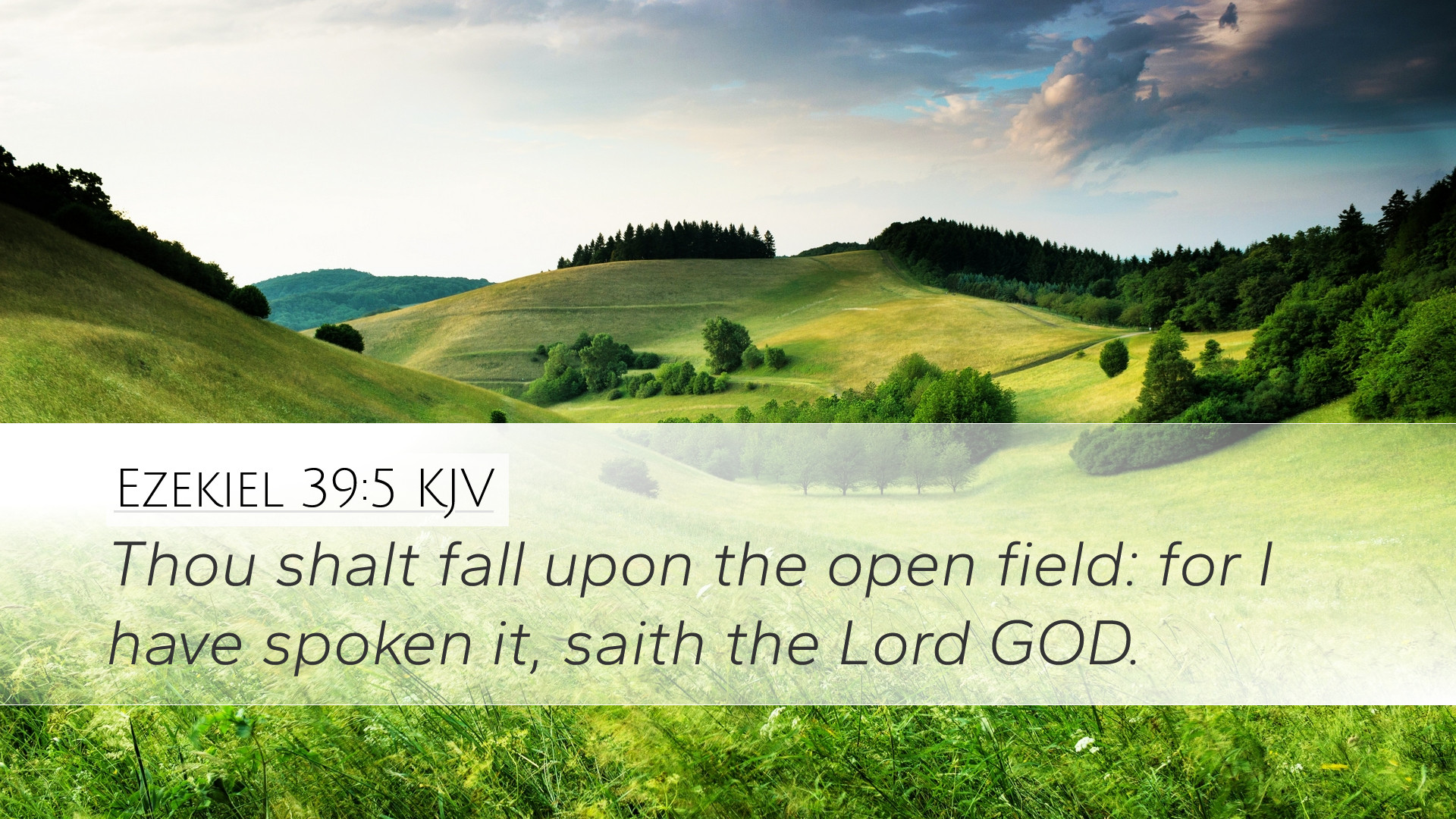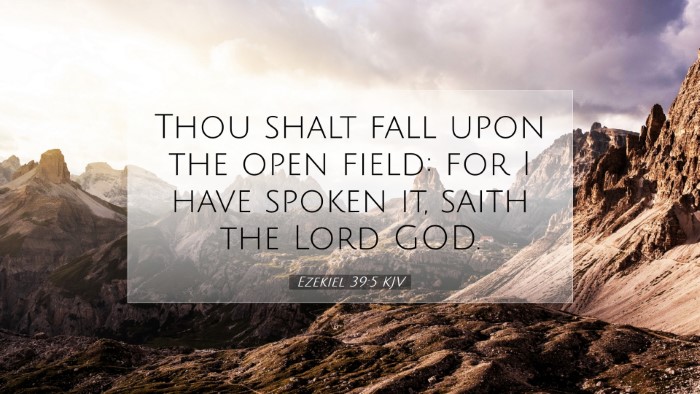Bible Commentary on Ezekiel 39:5
Verse (Ezekiel 39:5): "Thou shalt fall upon the open field: for I have spoken it, saith the Lord God."
Introduction
This verse is found in a prophetic context within the book of Ezekiel, where the prophet speaks of God's judgment upon Gog and Magog, representing the enemies of Israel. Ezekiel 39 continues the theme of divine judgment, as it emphasizes God's sovereignty in the unfolding of His plan for His people. The imagery of battle and the ultimate defeat of the enemy serves to reassure the people of Israel about their future restoration and God's protection.
Theological Insights
1. Judgment of Enemies
Albert Barnes notes that the phrase "fall upon the open field" symbolizes not only defeat but also total exposure to God's wrath. The enemies of Israel are depicted as having nowhere to hide from the judgment of God, reflecting a theological truth about the omnipresence and omnipotence of God in executing justice.
2. Divine Prophecy and Fulfillment
Matthew Henry emphasizes that God's word is unwavering, stating "for I have spoken it, saith the Lord God." This reaffirms the authority of divine prophecy, and it highlights that God's proclamations will surely come to pass. This serves as an encouragement to the Israelites, affirming that their enemies will not prevail against them because God has decreed their downfall.
3. Assurance of Victory
Adam Clarke emphasizes the comfort that this assurance brings to believers. In the face of adversity, the faithful can rest in the knowledge that God sides with them against their foes. The promise of victory is rooted in God's unchangeable nature and His commitment to protect and vindicate His people.
Exegesis of Key Terms
- Open Field: The imagery of the open field signifies a place of vulnerability, emphasizing that the enemies will not find refuge, and their defeat will be absolute.
- Fall: This verb showcases the utter defeat and divine judgment that awaits the adversaries, underscoring the decisiveness of God's actions.
- Lord God: The use of this title portrays the sovereignty, authority, and power of God over the nations and the history unfolding around Israel.
Historical Context
Set against the backdrop of Israel's Babylonian exile, this verse reassures the Israelites of God's continued engagement with their situation. Both historical and prophetic elements intertwine, as Ezekiel speaks to a time when nations, represented by Gog and Magog, would rise against Israel. This portion of the prophecy serves as a stark reminder of God's control over the narrative of His chosen people amid turmoil.
Application for Believers
1. Trust in God’s Promises
For contemporary believers, this passage calls for trust in God’s promises. Just as He assured the Israelites of their eventual triumph, so too can Christians today find solace in God’s assurances throughout Scriptural promises, especially in times of dismay or persecution.
2. Courage in Confronting Adversity
This verse inspires courage for those facing opposition or trials, with the understanding that God is actively involved in the fight. The decisive nature of God’s intervention can embolden believers not to fear evil or the enemies they may encounter in life.
3. Hope in God’s Justice
The assurance of divine judgment against enemies serves as a potent reminder of God’s justice. It encourages Christians to maintain hope that God will address wrongdoing in his ultimate timing. It promotes faith in God’s righteous judgment and control over the affairs of humanity.
Conclusion
Ezekiel 39:5, while contextually linked to the fate of Israel’s enemies, carries profound implications for understanding divine sovereignty, judgment, and the nature of God’s promises. By reflecting on the insights from Matthew Henry, Albert Barnes, and Adam Clarke, pastors, scholars, and students alike can draw applicable lessons for modern faith and practice. This text not only reassures believers of God’s ultimate plan for justice and victory but invites them to actively trust and serve amid life’s challenges.


